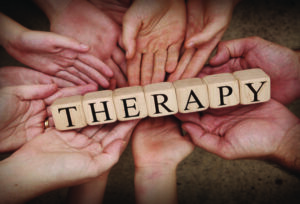“They cried to the Lord in their trouble, and he saved them from their distress. He sent out his word and healed them.” Psalm 107:19-20
Oftentimes when we think about healing, we focus on the individual and what they need to do to overcome their own ailment or challenge. However, Psalm 107 serves as a beautiful reminder that sometimes healing is a collective work.
Depending on the type of issue you are facing, group therapy can be a wonderful choice for healing work and positive change to take place in your life. It can provide a wide range of tools and strategies for dealing with various challenges, such as addiction, anxiety, trauma, social skills, and more.
Additionally, group therapy offers many more benefits. Consider the ones listed here to learn more about group therapy to see if this approach could be beneficial to you.
#1. Group therapy costs less than individual therapy.
Access to mental health care can be expensive—even more so than physical health costs. An hour-long traditional therapy session can range from $65-$250 or more, with most people paying approximately $100-$200 per session according to goodtherapy.org. On the flipside, group therapy costs significantly less ranging from $40-$80 per session (though prices vary depending on the program). If cost has been a factor in seeking help, then looking to group therapy may be helpful.
#2. Group therapy can help build a community of support.
Though it may be uncomfortable to think about sharing your struggles with others, regularly talking to and listening to others, helps you put your own challenges into perspective. It can also provide an additional sense of support and comfort to hear how others are handling and overcoming challenges similar to your own. This process can provide you with the positive support and healthy feedback necessary to help you make improvements in your life.
#3. Group therapy offers a professional perspective.
Group therapy sessions are led by professionally trained mental health therapists or psychologists, who use proven strategies and techniques for managing specific presenting problems. This gives group therapy an added benefit over informal self-help groups, and support groups.
use proven strategies and techniques for managing specific presenting problems. This gives group therapy an added benefit over informal self-help groups, and support groups.
If you are interested in participating in group therapy, visit the Life Connections website to see our available offerings. Additionally, checking with your own therapist, physician, local hospitals, and church may provide some options for finding group therapy.
